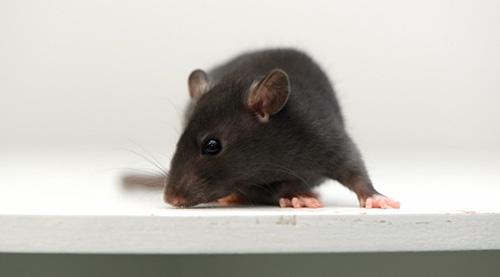Rats associate a smell with a positive experience
Researchers have discovered how to use smell to produce a positive emotional state in animals - by tickling rats.

Rats emit high pitched ultrasonic vocalisations (USVs) – akin to laughter – when they are happy, which can be used to measure their ‘enjoyment’ of tickling.
In an international collaboration, researchers at Scotland’s Rural College (SRUC), the Roslin Institute and the Institut National de la Recherche Agronomique (INRA), found that young rats can learn to associate the presence of a smell with the positive experience of being tickled.
The researchers observed that rats that had been ticked while exposed to a neutral odour, emitted more USVs when exposed to the same smell later on.
The research demonstrates the possibility of using positive stimuli, such as tickling, to study learning in animals.
Improving stress in domestic animals
We showed for the first time that rats can learn to associate a neutral odour with tickling. This suggests that the odour is now able to produce a positive emotional state in the rats and has a number of potential applications, including the use of positive odour conditioning to ameliorate stress in domestic animals. For example, if an animal has to go through a stressful procedure, it could be presented with an odour that it had previously associated with a pleasant context.
This is a novel method for positive/appetitive conditioning without the use of drug or food rewards. It is a fascinating foray into the world of positive emotions, which was enjoyable for the rats, as well as all the experimenters involved.
Associating a smell with a positive experience
The researchers exposed two groups of rats to different neutral odours (A and B). They then measured the USVs produced by the group of rats being tickled and the control group. The tickled rats produced significantly more USVs on the days they were tickled, and compared to the control rats.
In the next stage, both groups were exposed to three odours: an unknown neutral odour, extract of fox faeces, and either odours A or B. The USVs of the tickled rats increased when exposed to the odour they had previously experienced when tickled, indicating they had learned to associate the odour with a positive experience.
Funding
The research, published in the journal PLOS One, was supported by funding from the Scottish Government’s Strategic Research Programme and the UK Government’s Biotechnology and Biological Sciences Research Council, as well as a grant from the INRA Department of Animal Physiology and Livestock Systems.
** The Roslin Institute receives strategic investment funding from the Biotechnology and Biological Sciences Research Council and it is part of the University of Edinburgh’s Royal (Dick) School of Veterinary Studies. **
** This news story has been prepared using materials provided by SRUC. **


